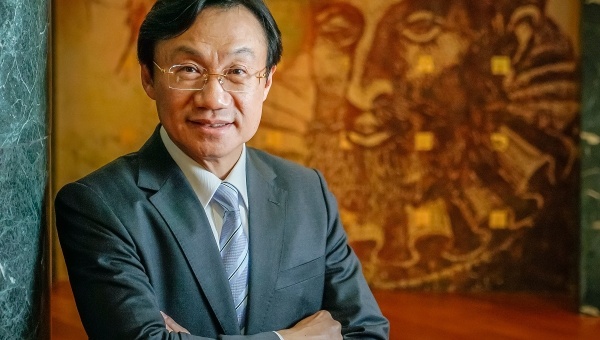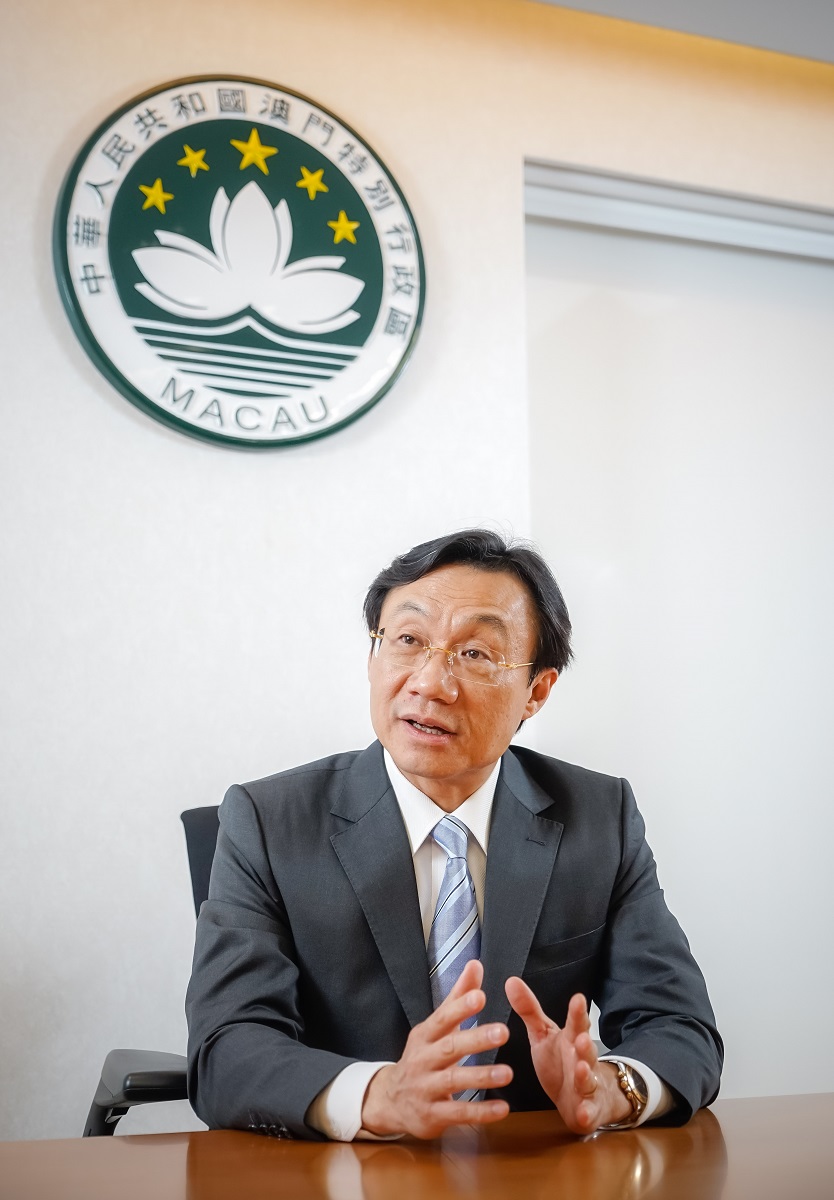A Higher Calling

The newly revised Macau Higher Education Act, which is moving to the committee stage, is set to have a big impact on education in the SAR.
A new higher education law brings improvements
“The law regulating Macau’s higher education was established some 20 years ago. It has failed to keep up with the times and the development of tertiary institutions,” says Alexis Tam Chon Weng, Secretary of Social Affairs and Culture of the Macau Special Administrative Region (SAR). “This outdated law, which is causing trouble to institutions and hindering higher education development, desperately needs revision. The act gained general approval from the Legislative Assembly in 2015. The final draft was the result of more than 10 meetings of the Standing Committees, and some 20 meetings concerning technical issues. We are confident that it will be passed within the term of office of the current Legislative Assembly,” Tam says.
“Should the act be passed, our institutions can expect to enjoy greater flexibility and independence when they introduce master’s or doctoral degree programmes, establish research institutes or adopt credit systems,” Tam says. “We also hope to set up a higher education committee consultancy to provide constructive advice on the development of tertiary institutions, and encourage them to obtain quality assurance from independent third parties, thereby increasing Macau’s overall academic standards and global recognition.”

“The Macau government has spared no effort in promoting Macau as a world-class travel and leisure spot and thus rendered full support to education, training relevant practitioners from a professional perspective,” says Tam. “For example, the Institute for Tourism Studies (ITS) has a number of courses accredited by the Tourism Education Quality certification body of the World Tourism Organisation (UNWTO). Other institutions also offer a wide range of tourism and hospitality management courses, which every year attract a large number of students and government officials, especially from the Asia-Pacific region and developing countries, for study or exchange in Macau. In this light, Macau is recognised as the U.N. tourism training centre, comparable to Switzerland, the US, and other places where tourism is more developed.”
Tam added that, as the ITS obtained accreditations from the U.N., its local peers have made remarkable progress. The University of Macau (UM) and the Macau University of Science and Technology (MUST), for example, have jumped in the rankings of universities in the Greater China areas in recent years, and are recruiting teaching staff from around the globe. “As for academic research, UM and MUST have jointly established the State Key Laboratory of Quality Research in Chinese Medicine. Individually, the MUST has its Joint Laboratory of Scientific Application and Research in Lunar and Planetary Exploration, whereas the UM has the State Key Laboratory of Analog and Mixed-Signal VLSI,” says Tam. “The establishment of these national laboratories is another milestone in Macau’s academic and scientific research area. It also proves that Macau’s universities have achieved national standards in scientific research and academic performance. All these show that Macau has become one of the major national hubs for talent development.”
Robust development in spite of limited land resources
Given its limited land resources, it has not been easy for Macau to establish 10 institutions in around 30 years. In January 2009, Xi Jinping, then Vice President of China, visited Macau. In the same year, the Standing Committee of the National People’s Congress approved a site of approximately 1.09 square kilometres in the east of Hengqin Island as the new UM campus, to be managed by the Macau government. In September 2009, Hu Jintao, then President of China, officiated at UM’s ground-breaking ceremony, where he expressed his hope to make the UM a world-class university.
“This major change has brought tremendous opportunities for the development of Macau’s higher education,” says Tam. “In 2013, UM was relocated to the current campus, a much more spacious site compared with the previous one in Taipa. The previous site was then reallocated to the Macau Polytechnic Institute, ITS, and the City University of Macau for further development. Additional land and space are the key factors of developing more courses and accommodating more students and teachers. Moreover, the University of Saint Joseph will be relocated to its new campus in Ilha Verde during the second half of this year, and MUST is also embarking on the next stage of development, with its upcoming academic building. I believe that overall, Macau is already capable of meeting future needs for higher education.”
Promoting industrial diversity through talent development
“Macau is such a small place that it often faces certain degree of restriction in terms of employment and development,” says Tam. “There will be many issues in case of market saturation. The Macau government is spending 14.7 per cent of its overall budget on education, and 34.6 per cent of the population are bachelor’s degree holders, a level similar to that of Hong Kong. In the long run, therefore, Macau must foster talented individuals through higher education, and introduce economic diversity at an optimum level so that we will not rely too much on certain sectors,” adds Tam. “For example, we have stepped up our promotion of cultural and creative industries in recent years, and we take an active part in supporting design, media, exhibition and art activities to enhance the development of various areas, including conventions and exhibitions, as well as Chinese medicine.”
Tam says he is satisfied with the current state of Macau’s higher education. “All of our institutions are unique in their own ways, and each of them has a clear position,” he says. “The Macau government has adhered to the principle of ‘Improving Macau Through Education and Strengthening Macau With Talents’. We invest heavily in education, particularly talent development. With a population close to 650,000 and a floating population of nearly 200,000, quality talent is crucial to our social and economic development.”
ref:http://www.educationpost.com.hk